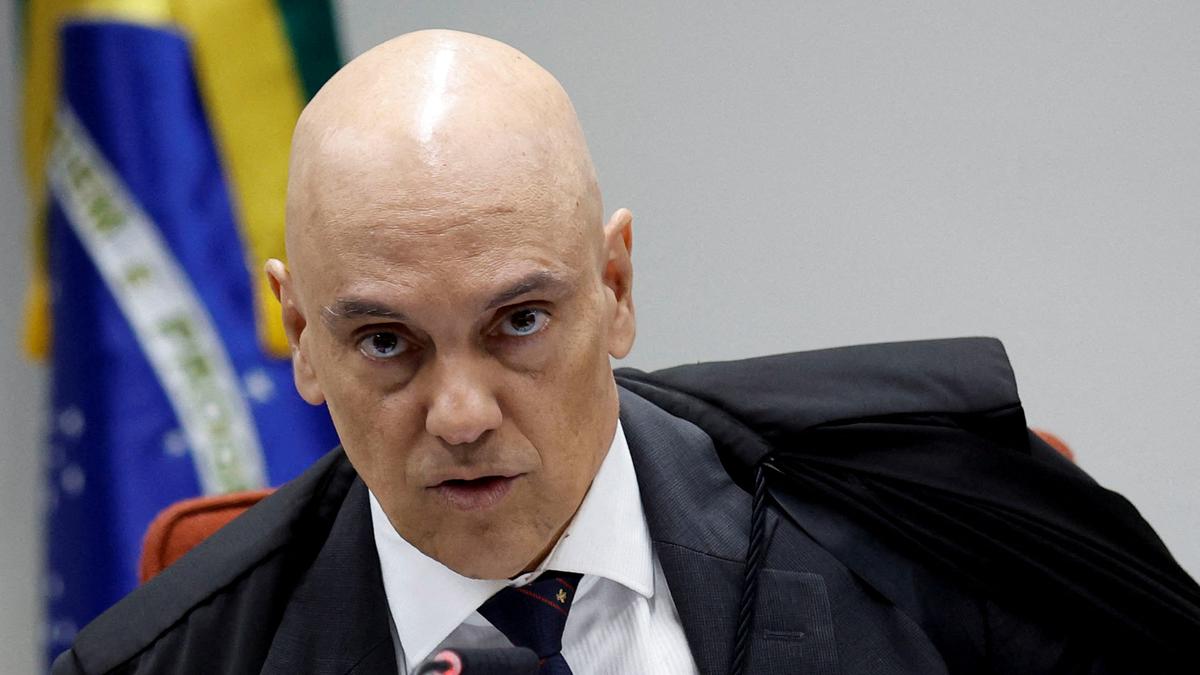Elon Musk’s social media giant X has been blocked in Brazil by a court order due to the company’s refusal to appoint a legal representative in the country. The order, issued by Supreme Court Justice Alexandre de Moraes, escalates a months-long dispute between Musk and the Brazilian justice system over free speech and the handling of misinformation.
A Clash of Ideologies: Free Speech vs. National Laws
The conflict between Musk and Justice de Moraes stems from a fundamental disagreement about the limits of free speech and the role of social media platforms in controlling online content. Musk, who acquired the platform formerly known as Twitter in 2022, champions the idea of a “free speech absolutist,” a stance that argues for minimal government regulation and interference in online expression.
However, Brazilian authorities, particularly Justice de Moraes, view social media platforms as crucial actors in the fight against disinformation and hate speech, which they believe threaten democratic processes and social stability. The Brazilian Supreme Court has repeatedly upheld the authority of platforms to remove content deemed illegal, such as those promoting violence or spreading misinformation.
Musk’s Resistance: Accusations of Censorship
X’s refusal to appoint a legal representative in Brazil has been interpreted as a deliberate act of defiance. The company, in its official statements, argues that Justice de Moraes’ demands are “illegal orders to censor his political opponents,” alleging that he has “frozen all of her [legal representative’s] bank accounts” and “threatened her with imprisonment.” X maintains that De Moraes’ actions constitute censorship and that his colleagues on the Supreme Court have “failed to stand up to him.”
The accusations leveled by X against De Moraes and the Brazilian justice system echo Musk’s own stance on free speech. He has accused De Moraes of dictatorial and tyrannical tendencies, claiming his actions are a violation of free speech rights. However, these claims have been met with strong rebukes from Brazilian authorities.
De Moraes’ Counter-Argument: Protecting Democracy
De Moraes’ defenders, including his colleagues on the Supreme Court, have argued that his actions against X are legally justified and necessary to protect Brazilian democracy from threats of disinformation and manipulation. They contend that social media platforms play a critical role in disseminating misinformation, and that failing to regulate their activities could undermine democratic institutions and public safety.
Specifically, De Moraes has highlighted the importance of X appointing a legal representative in Brazil as mandated by national law. This requirement ensures that companies are held accountable for their actions within the country and that authorities can communicate with them effectively, particularly regarding legal matters.
The Stakes: A Battle for Control Over Information
The dispute between Musk and De Moraes raises critical questions about the future of social media regulation in a globalized world. The standoff illustrates the clashing ideologies between tech companies championing unfettered free speech and sovereign nations seeking to regulate the information environment within their borders.
At stake is not just the availability of X in Brazil but also the power dynamics between social media companies and nation states. While tech companies assert their right to operate independently, sovereign governments insist on the right to regulate online activity within their borders.
The Brazilian Context: A Democracy Under Threat
The Brazilian government’s focus on regulating social media can be understood within the context of the country’s recent political history. Brazil, a young democracy, is still grappling with the legacy of authoritarianism and the challenges of navigating a highly polarized political landscape. The 2022 election, in particular, saw an escalation of online misinformation and efforts to delegitimize the electoral process.
De Moraes’ crackdown on X aligns with the Brazilian government’s efforts to address online threats to democratic institutions. By demanding compliance with regulations, including the appointment of a legal representative, the Brazilian government aims to assert its sovereignty over online spaces and limit the potential for online manipulation of public opinion.
Consequences of the Block: Economic and Societal Impact
The suspension of X in Brazil will have both economic and societal ramifications. The platform boasts over 40 million users in Brazil, representing a significant segment of the population. Blocking access to the platform will disrupt the communication channels of millions of Brazilians, impacting their ability to share information, engage in public discourse, and access news.
Beyond the social impact, the suspension of X will also affect the company’s financial performance. Brazil is a crucial market for X, and the loss of users will negatively impact the platform’s revenue stream. The standoff also underscores the growing legal and regulatory challenges faced by tech giants seeking to operate in global markets.
Looking Forward: A Complex and Evolving Landscape
The ongoing standoff between Musk and Brazilian authorities is not a singular incident but rather a symptom of a broader, evolving tension between social media companies and nation states over the regulation of online spaces. This dynamic is likely to continue to shape the future of social media globally, with legal battles and ideological clashes unfolding in various jurisdictions.
Takeaway Points:
- The Brazilian Supreme Court’s order to block X in Brazil represents a critical development in the ongoing struggle between tech giants and governments over online content moderation.
- This case highlights the complexities of navigating free speech rights in a digital age and the growing pressure on social media companies to adhere to local laws.
- The conflict underscores the need for a balanced approach that acknowledges the potential for online manipulation and harm while preserving freedom of expression and democratic processes.
- The outcome of this legal battle will have significant consequences for both X and the future of social media regulation in Brazil and other nations.




